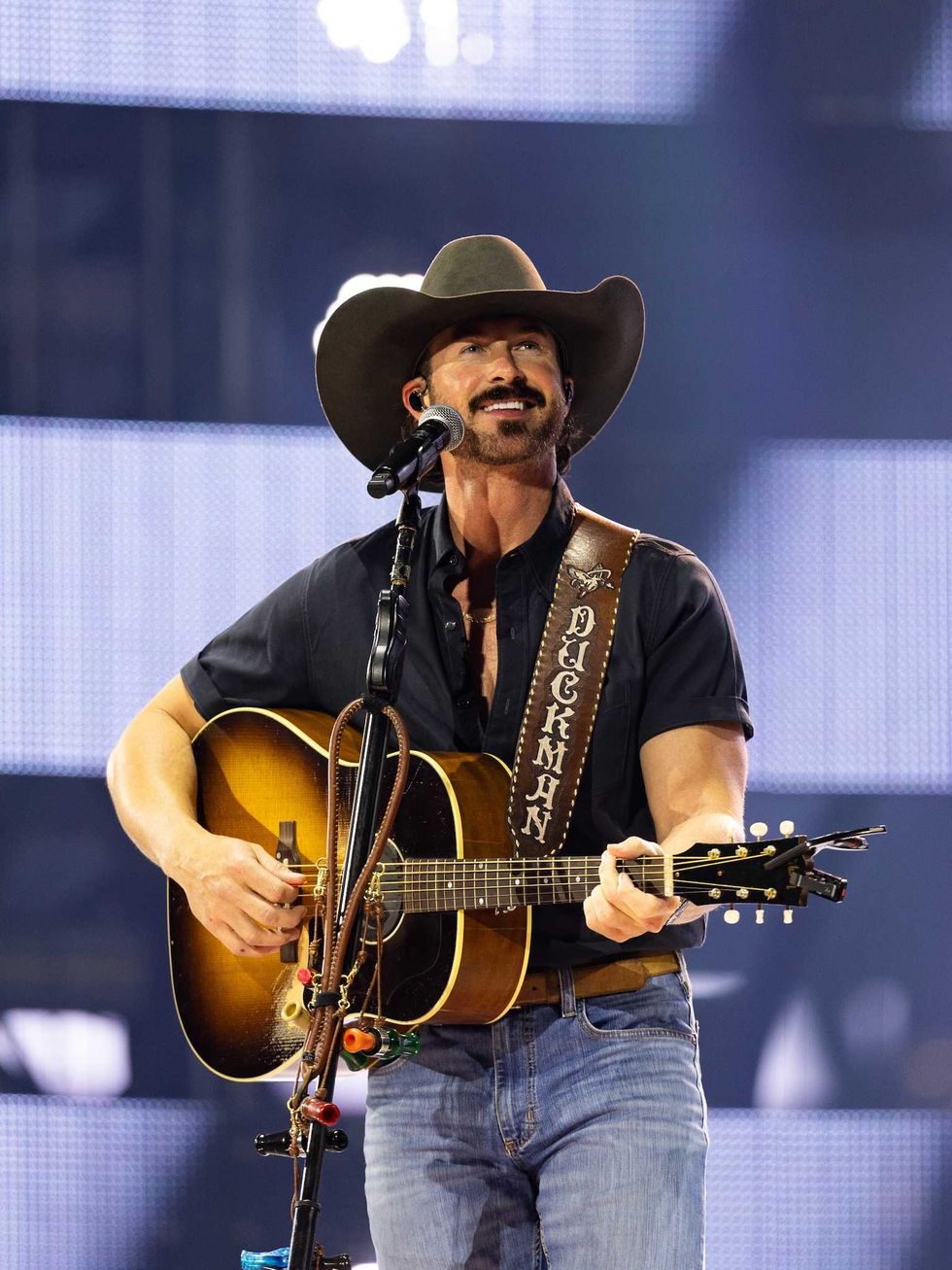The CultureMap Interview
Restoring hope in America's teenagers: Mariachi High lauds education beyond thenotes
Think of a world where teenagers are responsible, where after school hours they head home to tell their parents about their day, where they volunteer to help others, and where they actively prepare to further their studies at colleges and universities.
Fantasy? Not quite. That world exists in a small border-town in Texas.
Welcome to Zapata, population 5,000, the setting of Mariachi High, a PBS documentary by Ilana Trachtman, Kim Connell and Kelly Sheehan that unearths how cultural arts education is inspiring youth to stay on the right path and to pursue big dreams, whether planning to major in electrical engineering, biomedical engineering, veterinary science, music or law at institutions like Rice University, Texas A&M University or The University of Texas-Pan American.
"It's popular in politics to paint a negative picture of today's teenagers. That poetic rhetoric of the golden days of America, of nostalgia for how things used to be, that's found in these students at Zapata High School."
The film traces a group of high schoolers who go through auditions to be a part of a 16-member competitive Mariachi orchestra. One can't sing, another can't quite hit the high note. But when they don their "Traje," the traditional Mariachi uniform, they know they are no longer just representing themselves. They become role models representing Hispanic culture.
For the lucky ones who make it, intense training awaits as the returning champions vie to hold on to their title. They learn that respect isn't a gift, but something you earn. They learn that wisdom is knowing how little you know.
The film is set to debut on PBS across the country on Friday (9 p.m., Channel 8), with a free sneak peek screening ahead of the premiere at Talento Bilingüe de Houston Wednesday night, followed by a discussion with director Ilana Trachtman.
CultureMap chatted with Trachtman on the phone prior to her visit to Houston to get her take into infiltrating high school territory and what she gleaned from the experience.
CultureMap: I am curious about how you came across Mariachi programs in schools. They aren't very visible, unless you know to look for them. Have you been following the trends of cultural arts education for a while?
Ilana Trachtman: My partners (Kim Connell and Kelly Sheehan) and I worked at the same production company 12 years ago. We crafted a children series that touted the benefits of arts education with at risk youth. We did magazine-style pieces that explored different populations and how creative programs influenced their social and academic development.
We discovered, at the time, a new phenomenon in cultural music programs in schools with high concentrations of Latino and Mexican-American students. The three of us fell in love with high school Mariachi groups. We were very surprised about how talented and committed the students were, and how they defied all the stereotypes of Mexican-American youth, at least in relation to how politicians tend to portray this demographic.
It was back in 2000 when we vowed to return to the topic sometime in the future and put together a documentary. And here we are.
CM: What was it about the city of Zapata and Zapata High School that lured you and your team to focus on their story?
IT: After receiving seed money from Latino Public Broadcasting, we focused on casting the band. That was tricky. We needed to find the best group to tell this story, because no one wants to listen to anything but excellent Mariachi music — when it's bad, it's bad.
We searched for top performing schools with a history of winning Mariachi competitions. We sought a charismatic music director and kids who could be role models. We wanted a setting that wasn't typical; inner-city San Antonio just wouldn't do. And equally important was a school that would be willing to let us have access to all facets of the experience, including problems, set backs and successes.
All those qualities were in the border town of Zapata, Texas.
I wish we had more time to devote to the subject of major funding cuts threatening high school cultural arts education programs. They are at the top of the chopping block. This past year, Zapata High School was only able to participate in one competition.
CM: Through your time interacting with the students, parents and teachers, what surprised you the most about their goals, aspirations and way of life?
IT: I was truly surprised by how wholesome the kids were, and by that I mean that the students were close to their families. They are open and affectionate with their parents, dedicated to their school and aware of the dangers, both social and physical, of drugs and violence. They are the type of kids to go home and tell their parents everything about their day, and do not keep that image of teenage hood we often see portrayed on television.
These kids seem from a different time period. It's popular in politics to paint a negative picture of today's teenagers. That poetic rhetoric of the golden days of America, of nostalgia for how things used to be, that's found in these students at Zapata High School.
I've covered a lot of coming-of-age stories, yet my partners and I have never seen a community like this. I don't know if it's unique to Zapata. Maybe because it's a small town, a rural town, I am not sure. I wish my children would grow up in this type of warm, nurturing environment.
CM: Were there any stories, any additional subplots that didn't make it in the documentary that you wish could be heard?
IT: We had to reduce hundreds of hours of film down to a 49-minute feature. So yes, there were four additional beautiful storylines that didn't fit time wise in Mariachi High. But when the website goes live, people will be able to watch short videos that focus on these.
Like Belen Padilla, who celebrated her Quinceañera, and her coming-of-age journey. We follow Eloy Martinez, who's a minor character in the film, as he becomes the school mascot. Then there's Collin, the only Caucasian student in the troupe; he's asked to partake in a vocal competition.
I wish we had more time to devote to the subject of major funding cuts threatening high school cultural arts education programs. They are at the top of the chopping block. This past year, Zapata High School was only able to participate in one competition. In years past, they would have traveled to 20 or 30 events. The benefits of the program are very clear. Middle schools are already feeling the crunch.
CM: I often find that those who concentrate on exploring these types of subjects had similar experiences growing up. How did your love for the arts and arts education evolve?
IT: Kim and I both had art experiences in school. Kim is from Alabama. She was in her school's marching band and choir. I was president of the drama club. Those clubs were our haven, a place where we developed our personal voices, where we found a sense of belonging, something that's very important for teenagers. Affirmations that we were on the right track also came from friends. The arts is where I learned how to be myself.
CM: Now that Mariachi High is done, soon to be screened on PBS, what are your hopes for the documentary? I am assuming you want to convey a strong message. If so, what is it?
IT: First and foremost, we do have an agenda. Though in documentaries we are not allowed to say that, we have to be honest about it. We really want people to see, unequivocally, the benefits of arts education codified in standard school curriculum.
We also wanted to offer positive, attractive depictions of Latino youth. Latinos are the fastest growing demographic in the country and of that, Mexican-Americans occupy the largest percentage. The Latino school dropout rate is also the highest. That's a problem we need to fix.
Personally, I just want to keep telling good stories. This is one of several films that I am really proud of. That we keep on getting to do that is really special for the three of us.
CM: I imagine for the children, this was a transformative experience. How do you think their lives have changed because of participating and being featured in the film?
IT: I don't think any of the kids profiled suffered from any low self-esteem, but they are aware that they are from a small town. I feel their involvement in the film gives them confidence that they can hold their own, excel and compete with anyone no matter where they are from, big city of small town. They have big dreams despite that their town of 5,000 is in the middle of nowhere. It helps them feel secure that they can accomplish their dreams.
CM: And have they, in turn, influenced you?
IT: Mariachi High and the students have reminded me of nuances of what's good — I know this sounds so cheesy — of the beautiful spirit of humanity, of all the great things that we want for our kids. They've reminded me to be hopeful about the future of our country and about people in general. They gave me back hope — that's powerful.
I've made a promise to myself that my two kids — one who was born just as I started shooting, the other was born while I was editing the film — that I'll do what I can to provide this type of environment for them to grow up in.
When others watch the film, I just want them to be prepared and surprised by how beautiful Mariachi music is.
Houston Cinema Arts Society hosts a screening of Mariachi High at Talento Bilingüe de Houston on Wednesday at 7 p.m. A reception at 6 p.m. will feature Mexican cuisine by La Fisheria's executive chef Aquiles Chavez. After the screening, Ilana Trachtman will conduct a question-and-answer session, followed by a short performance by a Mariachi group from MECA. Admission is free. RSVP here.
The screening is presented in collaboration with Latino Public Broadcasting, Houston Public Media, MECA (Multicultural Education and Counseling through the Arts) and Houston Grand Opera.




